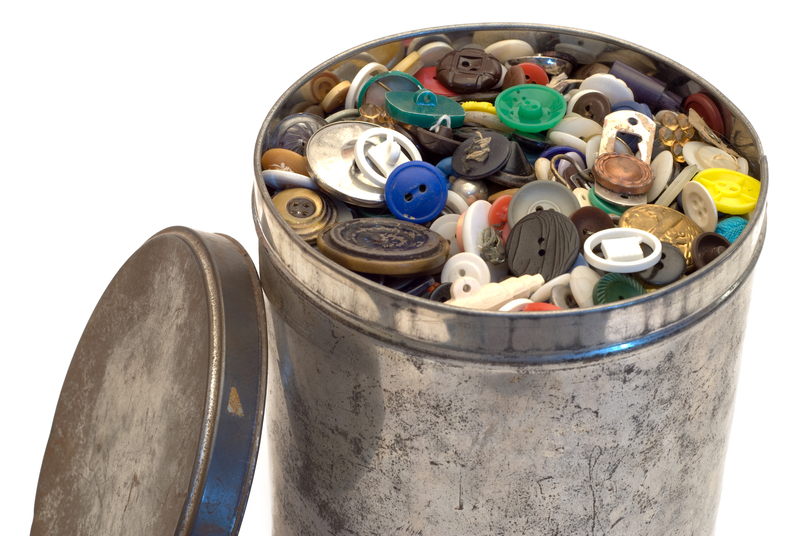Discover the Cheapest Ways to Handle Bulky Waste Items
Bulky waste items--think old mattresses, worn sofas, broken fridges, and large furniture--are household headaches for many. Not only are these items hefty and awkward to transport, but disposing of them improperly can harm the environment and might even land you with hefty fines. Thankfully, there are cost-effective solutions for bulky waste disposal that you can utilize with minimal strain on your wallet or the planet.
In this comprehensive guide, we'll explore the cheapest ways to dispose of large household waste items, including free pickup services, recycling schemes, donation options, and savvy DIY tips. Whether you're clearing out after a renovation, downsizing, or sprucing up your space, you'll find actionable steps and expert advice right here.

What Are Bulky Waste Items?
Bulky waste items refer to items that are too large or heavy to be collected via standard curbside waste collection services. These might include:
- Furniture: sofas, armchairs, beds, wardrobes, tables, and cabinets
- White goods: refrigerators, washing machines, dryers, ovens
- Mattresses and box springs
- Large electronics (TVs, monitors, etc.)
- Carpets, rugs, and padding
- Outdoor items: lawnmowers, garden sheds, fencing panels
Disposing of these items can be more challenging--and often more expensive--than getting rid of regular trash. However, the cheapest methods for bulky waste removal rely on knowing your available local resources and planning ahead.
Why Proper Bulky Waste Disposal Matters
Disposing of large unwanted items responsibly brings numerous benefits:
- Environmental protection: Preventing items from ending up in landfill unnecessarily reduces toxic runoff and greenhouse gas emissions.
- Resource conservation: Many bulky items are recyclable or reusable.
- Legal compliance: Avoiding fly tipping or illegal dumping protects you from fines.
- Community aesthetics: Keeping neighborhoods clear of dumped items ensures cleaner, safer spaces for everyone.
Cheapest Ways to Handle Bulky Waste Items
1. Utilize Free Council or Municipal Collection Services
Many local councils and municipalities offer free bulky waste collection services a few times a year. This is often the cheapest way to dispose of large waste items if it's available in your area. Here's how to take advantage:
- Check your local council's website to find out about scheduled bulky waste pickups or 'spring clean' programs.
- Book collections in advance as they're often oversubscribed.
- Confirm what items are accepted – some schemes don't handle certain electronics or hazardous materials.
Tip: If your area does not offer this service for free, many councils offer it at a discounted cost compared to private waste removal.
2. Take Bulky Items Directly to the Local Recycling or Waste Center
Most communities operate Household Waste Recycling Centers (HWRCs) where residents can drop off items for free or a minimal charge. This is often the most cost-efficient way to get rid of bulky waste. Here's what you should know:
- Locate your nearest facility using your council or city website.
- Check opening hours and documentation required (such as proof of address).
- Verify the accepted materials - some centers take mattresses, white goods, electronics, and bulk furniture items.
- Plan your trip: Borrow a friend's van/truck or split trips with neighbors to save even more!
Double benefit: Most centers recycle a significant proportion of what they receive, so your unwanted items may get a new life.
3. Use Freecycling, Gifting, or Donation Options
One person's trash is another's treasure! If your bulky waste items are still in usable condition, consider donating or giving them away:
- Freecycle, Nextdoor, Facebook Marketplace: Many local online groups allow you to list large unwanted items for free pickup.
- Charity shops and furniture reuse projects: Many organizations collect working fridges, sofas, beds, and tables for redistribution to families in need. Be sure to check for fire labels and cleanliness standards.
- Community groups or religious institutions: Local churches and community centers may accept furniture to support charitable work or assist new arrivals and low-income families.
Pro tip: Arrange doorstep pickups or leave items in safe, accessible spots to minimize hassle for both you and new owners.
4. Organize a Community Clean-Up or Swap Event
Team up with neighbors or your local residents' association to organize a group bulky waste removal. Many waste removal firms or councils offer substantial discounts for bulk pickups from several residences at once.
- Coordinate collection dates with your neighbors to maximize value.
- Plan a community "swap day" where items can be traded or taken for free before disposal.
- Contact local organizations for partnership opportunities - some will provide bins or haul-away services for neighborhood events.
5. Hire a Skip Only When Absolutely Necessary
Hiring a skip is often seen as the go-to for bulky waste. However, it can be expensive. Here are some ways to minimize costs:
- Choose a skip size that matches your load--avoid overpaying for unused space.
- Share the cost with neighbors or friends clearing out at the same time.
- Compare prices from several local skip hire firms to get the best deal.
- Look for "wait and load" services, which are cheaper than leaving a skip on your property for days.
Remember: Skips are usually better for mixed or non-recyclable waste. For recyclables or donations, consider other options first!
6. Break Down Items to Fit Standard Bin Collections
Sometimes, you can reduce waste disposal costs by dismantling furniture or breaking down bulk items:
- Unscrew sofas, beds, and tables to remove bulky frames.
- Cut up carpets and rolled mattresses where appropriate.
- Bag up materials and space them out over several regular waste pickups.
Always check what is allowed in your standard waste bin to avoid refusals or fines.
7. Sell Valuable or Reusable Bulky Items
If your unwanted items are in good condition, you might be able to earn some extra cash instead of paying to dispose of them. Try:
- eBay or Craigslist for antiques and branded furniture.
- Facebook Marketplace or Gumtree for local sales (often buyers will collect themselves).
- Specialty recycling centers for white goods and electronics--some pay for scrap materials.
Note: Check if the buyer will collect the item to avoid transport charges!
8. Use Authorized Man and Van Bulky Waste Removal Services
For quick disposal, a licensed "man and van" company can collect and dispose of bulky items. Here are tips to keep it as cheap as possible:
- Ask for quotes from multiple service providers.
- Ensure they are registered waste carriers to avoid fly-tipping liability.
- Save money by grouping your items with neighbors' loads.
Important: Avoid cash-in-hand or unlicensed operators--they frequently dump items illegally, for which you are legally responsible.
Frequently Asked Questions: Cheap Bulky Waste Disposal
How Can I Avoid Bulky Waste Disposal Fees?
The best way to avoid fees is to:
- Use local council free pickup events.
- Donate, gift, or sell items in good condition.
- Take items to a recycling center yourself.
What Bulky Items Are Most Commonly Recycled?
Metal bed frames, white goods, and hardwood furniture are often recycled. Mattresses and sofas can sometimes be broken down with metal springs and fabrics separated.
Can I Leave Large Waste Items on the Curb?
No-- leaving waste on the curb without an authorized collection is illegal in most areas and can result in fines.
Are There Any Items That Can't Be Collected as Bulky Waste?
Yes, some items are restricted:
- Hazardous materials (asbestos, chemicals)
- Car batteries or tires
- Commercial/industrial waste
- Always check with your local authority for a full list.
Tips to Reduce Bulky Waste Generation
- Choose furniture and appliances with longer lifespans or upcycling potential.
- Repurpose large items creatively (turn an old table into a garden bench, or a mattress into garden insulation).
- Buy second-hand to close the reuse loop and reduce demand for new bulky goods.
- Organize regular declutters to keep on top of accumulating junk.

The Bottom Line: Choose Smarter, Cheaper Bulky Waste Solutions
Handling bulky household waste doesn't have to be expensive. By taking advantage of local resources, collaborating with your community, and embracing reuse, recycling, and responsible disposal, you can save money, protect the environment, and keep your home clutter-free.
- Prioritize free and local government services.
- Donate, sell, or gift to keep items out of landfill.
- Opt for private removal services only when other options are exhausted.
Remember, the cheapest ways to handle bulky waste items usually involve reusing, recycling, and giving back to the community. Make an eco-friendly and budget-savvy choice today!
